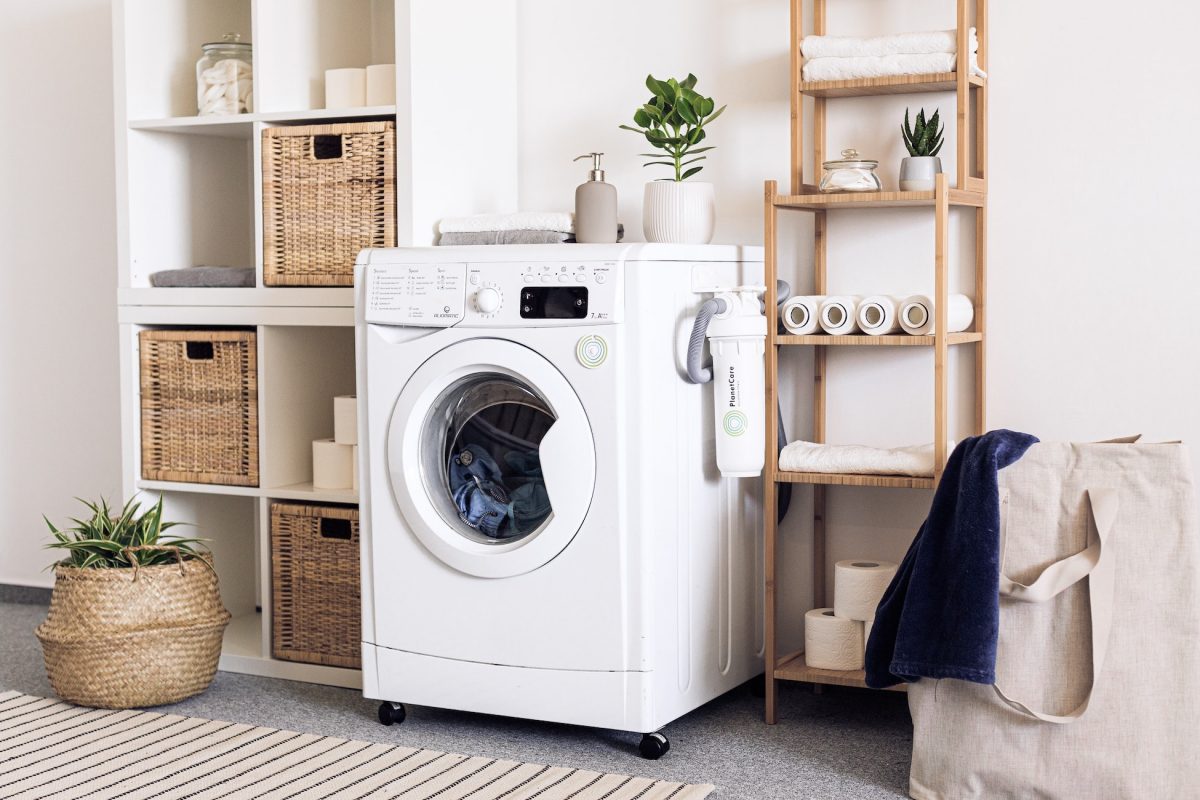Ever found yourself daydreaming about free travel rewards, cashback that practically pays for dinner, and the thrill of unlocking that elusive sign-up bonus? Welcome to the world of credit cards—a playground where applying for multiple cards can feel like hosting your very own financial party. But is it bad to apply for multiple credit cards? In this comprehensive guide, we’re diving deep into the ins and outs of juggling several credit card applications, debunking myths, and revealing strategies specially tailored for millennials and Gen Zers who love staying ahead in their financial game. Buckle up—this isn’t your typical snooze-fest on credit scores and hard inquiries. We’re here to bring clarity, humor, and a whole lot of practical insights.
Is It Bad To Apply For Multiple Credit Cards Table of Contents
Credit Card Applications 101: Setting the Stage
The Inner Workings of Your Credit Score
Pros and Cons: The Balancing Act of Multiple Applications
Understanding Hard and Soft Inquiries: The Credit Score Interrogations
Timing Is Everything: Smart Strategies for Multiple Applications
Advanced Tactics: Leveraging Multiple Cards for Optimal Benefits
Millennials, Gen Z, and the Modern Financial Landscape
Common Myths and Misconceptions About Multiple Credit Card Applications
Real-Life Narratives: Financial Success Stories in Action
Potential Pitfalls and How to Dodge Them
Resources and Community Support: Your Next Steps
Your Personalized Blueprint to Financial Flexibility
Exploring the Broader Implications: Social and Psychological Perspectives
Frequently Asked Questions About Applying for Multiple Credit Cards
Credit Card Applications 101: Setting the Stage
Picture this: You’re at a buffet with endless food options, each dish more tempting than the last. In the credit card world, that buffet is filled with rewards, low interest rates, and exclusive perks. But just like at a buffet, overloading your plate might lead to an upset stomach—or in this case, a dent in your credit score.
Understanding how credit card applications work is crucial. When you apply for a credit card, the issuer typically performs a “hard inquiry” on your credit report, which can temporarily lower your score. Now, while one or two hard inquiries may have a negligible effect, several inquiries in a short period can raise some red flags for lenders. In other words, the universe of credit cards is not as forgiving as the buffet where you can always ask for seconds without consequences.
So, is it inherently bad to apply for multiple credit cards? Not necessarily. It all boils down to strategy, timing, and understanding the fine print of how these applications impact your overall credit health.
The Inner Workings of Your Credit Score
Before diving into the pros and cons of applying for multiple credit cards, it’s essential to get a grip on the mysterious beast known as the credit score. Think of your credit score as a report card for your financial trustworthiness. It’s influenced by several factors:
- Payment History: Are you paying off your bills on time, or are you the procrastinator of the financial world?
- Credit Utilization: How much of your available credit are you using? Experts say keeping it below 30% is golden.
- Length of Credit History: The older your credit, the more seasoned your financial reputation.
- New Credit: This includes the number of recent inquiries and newly opened accounts.
- Credit Mix: A diverse portfolio with a credit card here, a student loan there, shows you can handle a variety of credit types.
When it comes to multiple credit card applications, the "new credit" component is the star of the show. Each time you apply, a hard inquiry marks your file, and while these inquiries don’t stick around forever, too many in a short span of time may cause your credit score to dip.
However, savvy financial strategists (and savvy millennials and Gen Zers alike) know that a diverse and well-managed credit portfolio can actually work in your favor. So, as we unravel the mysteries behind multiple credit card applications, keep in mind that balance is key.
Pros and Cons: The Balancing Act of Multiple Applications
Let’s break it down like a dance-off. On one side of the ring, you have the potential perks—reward bonuses, diversified credit lines, and sometimes even lower overall interest rates. On the other side, there are the potential pitfalls like credit score impacts, over-extension, and debt traps. Here’s a closer look:
Pros: More is More?
1. Diverse Rewards and Perks: Each credit card is like a Netflix subscription for rewards—one offers cashback on groceries, another might serve stellar travel points, while yet another could be the go-to for dining discounts. If you manage your cards well, you can maximize the benefits tailored to your lifestyle.
2. Increased Available Credit: More cards could mean a higher total credit limit. This can improve your credit utilization ratio, which is good news for your credit score—as long as you’re not maxing them out.
3. Building a Robust Credit Profile: When managed responsibly, having multiple credit cards can actually demonstrate your ability to handle varied lines of credit. This can enhance your overall financial profile.
Cons: The Dark Side of Credit Card Overload
1. Impact on Your Credit Score: Every hard inquiry, particularly if you apply for several cards at once, might slightly ding your score. Lenders might suddenly see you as a high-risk candidate.
2. Temptation to Overspend: With a higher available credit limit at your fingertips, the lure of lifestyle inflation is very real. It’s easy to think, “I can afford that,” only to find yourself deep in balance transfers and interest payments the next month.
3. Management Complexity: Keeping track of payment due dates, reward expiries, and varying interest rates across multiple cards demands impeccable organization. Forgetfulness can lead to late payments—a cardinal sin in the eyes of credit agencies.
Ultimately, the decision to pursue multiple credit cards requires a healthy self-assessment: Do you have the discipline to manage them effectively, or is your inner shopaholic screaming “yes” at every new offer?
Understanding Hard and Soft Inquiries: The Credit Score Interrogations
Here’s where the spy thriller meets fiscal responsibility. Credit inquiries come in two flavors: hard and soft. When you apply for a credit card, it triggers a hard inquiry—a deep dive into your credit report that the lender uses to assess risk. Think of it as a background check before granting you access to their treasure trove of rewards and credit.
In contrast, soft inquiries are like casual glances; they don’t affect your credit score and are often used for pre-approvals or account reviews. The key takeaway? While soft inquiries are harmless, hard inquiries are very much on the record. And although one or two won’t kill your credit score, a barrage in quick succession can have a noticeable impact.
It’s all about moderation. If you’re applying for several cards over a short period, be mindful of the cumulative effect on your score—and make sure you’re not inadvertently painting yourself as a financial risk.
Timing Is Everything: Smart Strategies for Multiple Applications
Much like dating apps where timing can be the difference between finding Mr. or Ms. Right—or just another ghosted match—credit card applications too require a strategic approach.
Plan Ahead
Instead of submitting several applications at once and triggering a credit score nosedive, plan your moves. Consider spacing out your applications over several months. This strategy not only gives your credit score time to recover from any hard inquiries but also provides you with an opportunity to assess the rewards and benefits you’re actually using.
Assess Your Financial Needs
Know what you’re looking for before you hit “Apply.” Are you after travel perks, cashback rewards, or a low-interest balance transfer? Each card is designed for a specific need. By aligning your goals with the right product, you not only avoid unnecessary inquiries but also build a portfolio that works cohesively toward your financial goals.
Monitor Your Credit Score
Regularly checking your credit score can be a game changer. It provides you with a snapshot of how upcoming applications may impact your score. Plus, it’s a great way to catch any inaccuracies or signs of identity theft (because we all know how sneaky those credit card ninjas can be).
With a clear plan and proactive monitoring, you can navigate the credit card buffet without overindulging.
Advanced Tactics: Leveraging Multiple Cards for Optimal Benefits
For the financially savvy, applying for multiple credit cards isn’t just about facing a potential dip in your credit score—it’s about leveraging the system to your advantage. Here are some tactical strategies that even the most seasoned millennials and Gen Zers use:
Rate Shopping for Balance Transfers
If you’re juggling some high-interest debt, multiple cards can be a lifesaver. By transferring balances to cards with lower rates, you can reduce your overall interest payments. However, beware of balance transfer fees and the fine print—nothing ruins a financial victory like a hidden cost.
Maximizing Rewards Categories
Imagine having a squad of credit cards, each specialized in a unique way. One card may offer stellar cashback on groceries, another may provide extra points for travel bookings, while a third might amplify your rewards on dining or streaming services. By aligning each card with your specific spending habits, you can extract maximum value from every purchase.
Strategic Applications During Credit Score Rebounds
Timing your additional credit card applications during periods when your credit score is buoyant can minimize potential drawbacks from hard inquiries. If you notice your score has rebounded after a previous application, it might be a great time to apply for that next card.
Utilizing Pre-Qualification Offers
Many credit card issuers offer pre-qualification options that involve only a soft inquiry. Taking advantage of these offers allows you to gauge your eligibility and compare benefits without the risk of impacting your credit score significantly.
Employing these advanced tactics means you’re not just randomly applying for cards; you’re crafting a tailored financial strategy that works for your current lifestyle and future aspirations.
Millennials, Gen Z, and the Modern Financial Landscape
Growing up in the digital age, millennials and Gen Z are no strangers to technology—and that includes fintech. From mobile apps that track your spending to robo-advisors that manage your portfolio, the modern financial ecosystem is fast-paced, transparent, and more accessible than ever before.
For you digital natives, managing multiple credit cards can be less of a burden thanks to online banking, budgeting apps, and instant alerts. However, the allure of instant gratification should be balanced with long-term strategy. Remember, while the online world encourages quick decisions, financial health is a marathon, not a sprint.
In this era of financial independence and side hustles, understanding the implications of applying for multiple credit cards can empower you to make informed decisions that align with your lifestyle. Whether you’re harnessing rewards for travel adventures or using them as a tool for debt management, a strategic approach can be the difference between thriving and just surviving financially.
Common Myths and Misconceptions About Multiple Credit Card Applications
The world of credit cards is riddled with half-truths, outdated advice, and plain old myths. Let’s bust some of the most common misconceptions that might be holding you back from optimizing your credit strategy:
Myth 1: More Credit Cards Always Mean a Better Credit Score
It’s a common belief that having more credit cards automatically translates to a higher credit score. In reality, it’s not just about the number of cards you have—it’s about how you manage them. High balances, missed payments, and a chaotic financial routine can offset the potential benefits of additional cards.
Myth 2: Hard Inquiries Permanently Ruin Your Credit
Many assume that every hard inquiry is a scar on their financial reputation forever. The truth is, while hard inquiries may cause a temporary dip, they fade away over time if you manage your credit responsibly. It’s all about maintaining a healthy credit behavior.
Myth 3: You Need a Stellar Credit Score to Apply for Multiple Cards
While a good credit score certainly opens more doors, many credit card issuers offer products tailored to various credit ranges. It’s essential to research offers and select cards that match your current credit profile rather than aiming for the most exclusive options right off the bat.
Myth 4: Applying for Multiple Cards is Always a Sign of Financial Instability
Not at all. Strategic and planned applications are a key part of modern financial planning. When done correctly, applying for multiple cards can actually reflect a proactive approach to managing and optimizing your credit resources.
Dispelling these myths allows you to focus on the real factors that matter—discretion, strategy, and continuous monitoring of your credit health.
Real-Life Narratives: Financial Success Stories in Action
Sometimes, stories are the best teachers. Let’s check out a few real-life narratives that illustrate how applying for multiple credit cards—when done smartly—can significantly boost financial flexibility and rewards:
The Savvy Traveler
Meet Alex, a self-proclaimed globetrotter who loves collecting travel rewards. By strategically applying for cards with free travel insurance, no foreign transaction fees, and generous sign-up bonuses, Alex managed to cover most of a year’s worth of international flights and hotel stays without burning through his savings. His secret? He staggered his card applications, ensuring his credit score had time to recover after each hard inquiry, and he kept his credit utilization low.
The Cashback Connoisseur
Then there’s Mia, whose passion for dining out and shopping led her to build a diverse portfolio of cashback credit cards. Mia applied for cards that offered enhanced rewards in different spending categories—one for supermarkets, another for streaming services, and yet another for everyday purchases. By keeping track of her expenses through budgeting apps and paying off balances in full every month, she transformed her everyday spending into generous cashback rewards, fueling her savings and even a side business.
The Debt Crusher
Finally, consider Jordan, who found himself juggling multiple debts. Instead of letting high-interest rates pile up, Jordan strategically used balance transfer offers from a few well-chosen credit cards. This approach helped him consolidate his debt at a lower interest rate, cut down on payments, and eventually climb out of the debt trap—all while maintaining a watchful eye on his credit score.
These stories are a testament to the power of informed decision-making. They show that with the right strategies and a dash of discipline, applying for multiple credit cards isn't a reckless gamble—it’s a calculated step toward financial empowerment.
Potential Pitfalls and How to Dodge Them
Even the most strategically managed credit portfolio can run into obstacles if caution isn’t exercised. Here are some common pitfalls when applying for multiple credit cards and ways to avoid them:
Overstepping Your Budget
It’s easy to get carried away when you know you have a high credit limit. However, overspending is a dangerous habit. Develop a strict budget, monitor your spending religiously, and use financial management apps to keep a daily check on your expenses.
Missing Payment Deadlines
With multiple cards comes multiple due dates. Set up automatic payments and reminders to ensure that no payment is missed. Late payments can not only cost you in fees and interest but also knock your credit score down a peg.
Ignoring the Fine Print
Every credit card comes with its own set of terms and conditions—from annual fees to variable interest rates and potential penalty clauses. Take the time to read the fine print for each card. Understanding the true costs and benefits can help avert any unwelcome surprises down the line.
Falling for “Too Good to Be True” Offers
In the world of credit cards, there’s no shortage of flashy offers. However, if something sounds too good to be true, it probably is. Always compare multiple offers, and consider your financial needs and spending habits before rushing to apply.
Being aware of these potential pitfalls means you are better equipped to navigate the credit card landscape. It’s not about avoiding all risks, but rather about managing them effectively and paving the way for long-term financial success.
Resources and Community Support: Your Next Steps
No financial journey is taken alone. For those of you looking to master the art of applying for multiple credit cards, there are plenty of resources and supportive communities online waiting to help.
Financial Blogs and Websites: Explore reputable sites that dive into credit card reviews, industry trends, and financial planning tips. These platforms often feature user-generated reviews and success stories which can provide insights and cautionary tales alike.
Online Forums and Communities: Join platforms like Reddit’s r/creditcards, where thousands of like-minded individuals trade tips, share experiences, and offer advice based on their own credit card journeys. These communities can be invaluable when you’re faced with tough choices or need a quick answer.
Credit Monitoring Tools: Tools like Credit Karma, Experian, and other credit tracking services offer real-time insights into your credit score, helping you manage applications and anticipate any impacts from hard inquiries.
Professional Advice: Sometimes, talking to a financial advisor or credit counselor can provide personalized insights specific to your financial situation. They can help you navigate the complexities of credit management and devise a strategy that balances risk and reward.
Taking advantage of these resources will empower you to refine your approach, stay informed about changing financial landscapes, and ultimately make decisions that are in line with your long-term goals.
Your Personalized Blueprint to Financial Flexibility
Crafting a personalized strategy when it comes to multiple credit card applications starts with self-reflection and clear financial objectives. Here’s a blueprint to help you navigate your own journey:
Step 1: Audit Your Financial Health
Before diving into new applications, take a comprehensive look at your current financial standing. Evaluate your existing credit cards, outstanding debts, income sources, and monthly expenses. This introspection will help you determine the ideal number of new cards you can realistically manage without jeopardizing your financial stability.
Step 2: Define Your Objectives
What are you hoping to achieve by applying for additional cards? Whether it's accumulating rewards, lowering interest rates through balance transfers, or building credit to unlock better financial products, clarifying your goals goes a long way in influencing your decisions.
Step 3: Research and Compare Offers
The online world is brimming with credit card offers. Use comparison tools and read detailed reviews to identify cards that match your objectives. Look for sign-up bonuses, rewards structures, annual fees, and interest rate details. Make a detailed comparison chart to weigh the pros and cons of each offer.
Step 4: Create a Timetable
Rather than applying for all cards in one go, establish a timetable that spaces out your applications. This method helps minimize the cumulative impact of hard inquiries and gives you time to assess the performance of recently acquired cards.
Step 5: Implement and Monitor
Once you have your new cards in hand, monitor your spending, payment schedules, and reward accrual. Use budgeting apps, set up automatic payments where possible, and periodically review your credit report for changes. Establishing a routine will be essential in ensuring that your credit portfolio remains a boon rather than a burden.
Embarking on this journey with a well-thought-out blueprint allows you to maximize benefits, minimize risks, and build a credit portfolio that serves as the backbone of your financial future.
Exploring the Broader Implications: Social and Psychological Perspectives
For many millennials and Gen Zers, credit is more than just numbers on a report—it’s a symbol of independence, empowerment, and the pursuit of financial freedom. In today’s world, where social media often glamorizes financial success, it’s easy to feel pressured to have the “perfect” credit mix.
However, it’s important to remember that behind every credit card application is a real person with unique financial goals and challenges. The act of applying for multiple credit cards is not a measure of one’s financial worth; it’s merely a tool. It’s essential to maintain a clear mind, avoid peer pressure, and, most importantly, remember that your financial journey is uniquely yours.
Psychological factors such as impulse control, risk tolerance, and even personality traits play a significant role in how you manage credit. Understanding these aspects can help you develop better habits and build a robust framework for long-term financial success. After all, a healthy credit strategy is not just about having multiple cards—it’s about empowering you to make choices that align with your values and future aspirations.
Frequently Asked Questions About Applying for Multiple Credit Cards
Below are some of the most sought-after questions on the topic of applying for multiple credit cards along with concise answers to help you better understand the dynamics at play.
1. Is it bad to apply for several credit cards in a short amount of time?
Not necessarily. While applying for several credit cards can lead to multiple hard inquiries on your credit report, if you space out your applications and manage your credit responsibly, the impact may be minimal.
2. How do hard inquiries affect my credit score?
Each hard inquiry from a credit card application may cause a slight temporary drop in your credit score. However, if you maintain timely payments and use your credit wisely, these effects usually fade over time.
3. Can multiple credit cards improve my credit utilization ratio?
Yes, if you manage your spending such that your overall debt remains low relative to your total available credit, having multiple cards can help improve your credit utilization ratio—a key factor in credit scoring.
4. What are the benefits of having more than one credit card?
Multiple credit cards allow you to access a variety of rewards programs, balance transfer offers, and different spending benefits. They can also enhance your available credit, provided you manage them well.
5. Should I apply for a new credit card if I’m planning a big purchase?
It depends. While a new card with a lucrative sign-up bonus might seem appealing, make sure you’re not compromising your credit score for a short-term benefit. Assess your overall financial situation before making any decisions.
6. How can I minimize the negative impact of hard inquiries?
By spacing out your credit card applications and monitoring your credit score regularly, you can mitigate the short-term drop from hard inquiries. Additionally, using pre-qualification tools can help reduce unnecessary hard pulls.
7. Does having more credit cards mean I'll get more debt?
Not if you have the discipline to manage them responsibly. Multiple credit cards can be an asset if you maintain low balances, pay on time, and avoid overspending.
8. Are there specific cards recommended for millennials and Gen Z?
Many issuers now offer cards with rewards tailored for digital lifestyles—think travel perks, cashback on streaming and dining, and robust mobile banking features. Research and choose the cards that best align with your spending habits.
9. How often should I check my credit score?
Regular monitoring—ideally monthly—can help you stay on top of your credit health and quickly identify any anomalies or areas requiring improvement.
Charting Your Path Forward
So, is it bad to apply for multiple credit cards? Not if you approach it with a clear, strategic plan. The digital age has empowered millennials and Gen Zers with tools and resources that make credit management more accessible and transparent than ever before. Just as with any major financial decision, the key lies in understanding your personal financial landscape, setting realistic goals, and staying informed about both the perks and pitfalls along the way.
Whether you’re looking to build credit, maximize rewards, or simply manage debt more effectively, the decision to apply for multiple credit cards should be viewed as part of a broader journey toward financial empowerment. With careful planning, disciplined spending, and proactive monitoring, multiple credit card applications can become a powerful tool in your financial arsenal.
Embrace the process, learn from every application, and let your unique financial story be defined by informed choices rather than impulsive decisions. Remember, every swipe and every hard inquiry tells a part of your financial narrative—make sure it’s a story of growth, resilience, and smart financial triumph.
Your journey to financial flexibility starts by taking small, calculated steps. Explore your options, leverage the rewards, and never hesitate to seek advice from trusted resources. With a measured strategy, the world of credit cards can be less a minefield and more a well-curated toolkit to help you achieve the financial freedom you deserve.
So go ahead—apply that savvy plan, manage those cards smartly, and pave the way for a future where every financial decision works to empower you. Your credit story is in your hands, and the best chapters are yet to be written.













